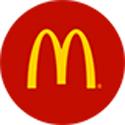Brands
FDA May Soon Require Non-Dairy “Milks” To Change Their Labeling
 In what may be the first step toward changing the way plant-based dairy substitutes are labeled, the FDA is soliciting comments from producers and other experts on how consumers use the alternative “milk.” The agency wants to know whether American consumers understand how substitutes differ from cow’s milk in nutritional content and cooking performance. As sales of non-dairy substitutes like soy and almond milk National Milk Producers Federation asked the FDA to enforce what's known as a "standard of identity." The for milk reads, in part: "the lacteal secretion, practically free from colostrum” – the milk produced after giving birth – “obtained by the complete milking of one or more healthy cows." Companies and consumers have 60 days to respond to the FDA's questions.[Image Credit: © rawpixel from Pixabay]
In what may be the first step toward changing the way plant-based dairy substitutes are labeled, the FDA is soliciting comments from producers and other experts on how consumers use the alternative “milk.” The agency wants to know whether American consumers understand how substitutes differ from cow’s milk in nutritional content and cooking performance. As sales of non-dairy substitutes like soy and almond milk National Milk Producers Federation asked the FDA to enforce what's known as a "standard of identity." The for milk reads, in part: "the lacteal secretion, practically free from colostrum” – the milk produced after giving birth – “obtained by the complete milking of one or more healthy cows." Companies and consumers have 60 days to respond to the FDA's questions.[Image Credit: © rawpixel from Pixabay]
Fast-food, Restaurant Chains Wooing Millennials Spurn Processed Cheese
 Fast-food and fast-casual restaurant chains bowing to the demands of the Millennial generation are spurning the century-old sandwich favorite processed American cheese – made with sodium citrate, calcium phosphate, natamycin, modified food starch, and milk – in favor of premium cheeses that contain no synthetic or artificial ingredients. Wendy’s, for example, offers asiago, AW's Canada locations use real cheddar, McDonald's replaced its Big Mac American cheese with a version that contains no artificial preservatives, and Panera Bread is now using a four-cheese combo of fontina, cheddar, manteau and smoked gouda to make its grilled cheese sandwich. The result is higher sales for the restaurants, and a significant drop in American cheese sales for the fourth straight year. U.S. sales of processed cheese, including brands like Kraft Singles and Velveeta are projected to drop 1.6 percent this year.[Image Credit: © Hans Braxmeier from Pixabay]
Fast-food and fast-casual restaurant chains bowing to the demands of the Millennial generation are spurning the century-old sandwich favorite processed American cheese – made with sodium citrate, calcium phosphate, natamycin, modified food starch, and milk – in favor of premium cheeses that contain no synthetic or artificial ingredients. Wendy’s, for example, offers asiago, AW's Canada locations use real cheddar, McDonald's replaced its Big Mac American cheese with a version that contains no artificial preservatives, and Panera Bread is now using a four-cheese combo of fontina, cheddar, manteau and smoked gouda to make its grilled cheese sandwich. The result is higher sales for the restaurants, and a significant drop in American cheese sales for the fourth straight year. U.S. sales of processed cheese, including brands like Kraft Singles and Velveeta are projected to drop 1.6 percent this year.[Image Credit: © Hans Braxmeier from Pixabay]
Companies
Suit Alleges Pret a Manger’s Baked Goods Contain Weed Killer Ingredient
McDonald’s Removes Artificial Preservatives, Flavors, Colors From Menu Items

Hoping to attract more health-conscious consumers to its restaurants, McDonald's is getting rid of the artificial ingredients in its menu items. Seven classic burgers – the hamburger, cheeseburger, double cheeseburger, McDouble, Quarter Pounder with Cheese, Double Quarter Pounder with Cheese, and Big Mac – will no longer contain artificial preservatives, flavors or colors. The changes apply to the bun, the cheese, and the sauce, but not to the pickles. Ingredients eliminated include the artificial preservative calcium propionate from buns and the preservative sorbic acid from its American cheese. Th company is also removing potassium sorbate, sodium benzoate, and calcium disodium EDTA from the Big Mac Special Sauce without "sacrificing that signature taste."[Image Credit: © McDonald's]
Nestlé USA Forms New Partnerships With Innovative Food Start-Ups
Belgians Adopt Food Nutrition Labeling Scheme Developed In France
 The Belgian government has introduced a voluntary scheme for front-of-pack nutritional labeling that is now being implemented by the country’s grocery retailers. The Nutri-Score scheme was developed by the French government and put in place in France a year ago. The system was designed to inform consumers about the nutritional quality of a product by using color coding associated with letters from A to E. Five levels range from the most nutritionally favorable product (class A) to the least (class E). U.S exporters to Belgium will not have to comply with the scheme if they don’t want to. Two large retail chains, Ahold Delhaize and Colryut, have committed to applying the scheme by the end of 2018.[Image Credit: © Ahold Delhaize]
The Belgian government has introduced a voluntary scheme for front-of-pack nutritional labeling that is now being implemented by the country’s grocery retailers. The Nutri-Score scheme was developed by the French government and put in place in France a year ago. The system was designed to inform consumers about the nutritional quality of a product by using color coding associated with letters from A to E. Five levels range from the most nutritionally favorable product (class A) to the least (class E). U.S exporters to Belgium will not have to comply with the scheme if they don’t want to. Two large retail chains, Ahold Delhaize and Colryut, have committed to applying the scheme by the end of 2018.[Image Credit: © Ahold Delhaize]
Innovations
Bioengineering Company’s New Technology Delivers “Natural Preservatives”
Regulation
FDA May Soon Update The Definition Of, And Permitted Ingredients For, Yogurt
 The FDA is looking into the possibility of “modernizing” regulations governing the content and even the definition of yogurt. The dairy industry has been pushing to open up the yogurt standard as manufacturing practices and consumer tastes have changed. The FDA established a standard for foods labeled as "yogurt" in 1981 that limited the ingredients. But the industry objected; the following year the agency suspended enforcement of various provisions and allowed the addition of preservatives. A 2009 rule that was never finalized created a unified standard that allowed emulsifiers as well, but yogurt makers said the rule created confusion and left it open to lawsuits. Meanwhile, milk producers hope the FDA’s “modernized” standards will soon crack down on soy and almond drinks that call themselves "milk," which current standards say must come from a cow.[Image Credit: © Aline Ponce from Pixabay]
The FDA is looking into the possibility of “modernizing” regulations governing the content and even the definition of yogurt. The dairy industry has been pushing to open up the yogurt standard as manufacturing practices and consumer tastes have changed. The FDA established a standard for foods labeled as "yogurt" in 1981 that limited the ingredients. But the industry objected; the following year the agency suspended enforcement of various provisions and allowed the addition of preservatives. A 2009 rule that was never finalized created a unified standard that allowed emulsifiers as well, but yogurt makers said the rule created confusion and left it open to lawsuits. Meanwhile, milk producers hope the FDA’s “modernized” standards will soon crack down on soy and almond drinks that call themselves "milk," which current standards say must come from a cow.[Image Credit: © Aline Ponce from Pixabay]
FDA Drops Seven Approved Flavoring Chemicals After Data Prove They Cause Cancer
 Responding to two food additive petitions, the Food and Drug Administration has removed seven synthetic flavoring substances and flavor enhancers (adjuvants) from its list of approved ingredients because they have been proven to be carcinogenic. Data presented in one of the petitions submitted to the FDA by Breast Cancer Fund and nine other watchdog groups show that six of the synthetic substances caused cancer in laboratory animals under the conditions of the studies. The seventh synthetic flavor was dropped from the list because it is no longer used by industry. The six flavoring substances include synthetically-derived benzophenone, ethyl acrylate, eugenyl methyl ether (methyl eugenol), myrcene, pulegone, and pyridine. [Image Credit: © Breast Cancer Prevention Partners (Formerly Breast Cancer Fund)]
Responding to two food additive petitions, the Food and Drug Administration has removed seven synthetic flavoring substances and flavor enhancers (adjuvants) from its list of approved ingredients because they have been proven to be carcinogenic. Data presented in one of the petitions submitted to the FDA by Breast Cancer Fund and nine other watchdog groups show that six of the synthetic substances caused cancer in laboratory animals under the conditions of the studies. The seventh synthetic flavor was dropped from the list because it is no longer used by industry. The six flavoring substances include synthetically-derived benzophenone, ethyl acrylate, eugenyl methyl ether (methyl eugenol), myrcene, pulegone, and pyridine. [Image Credit: © Breast Cancer Prevention Partners (Formerly Breast Cancer Fund)]
Copyright 2026 Business360, Inc.

